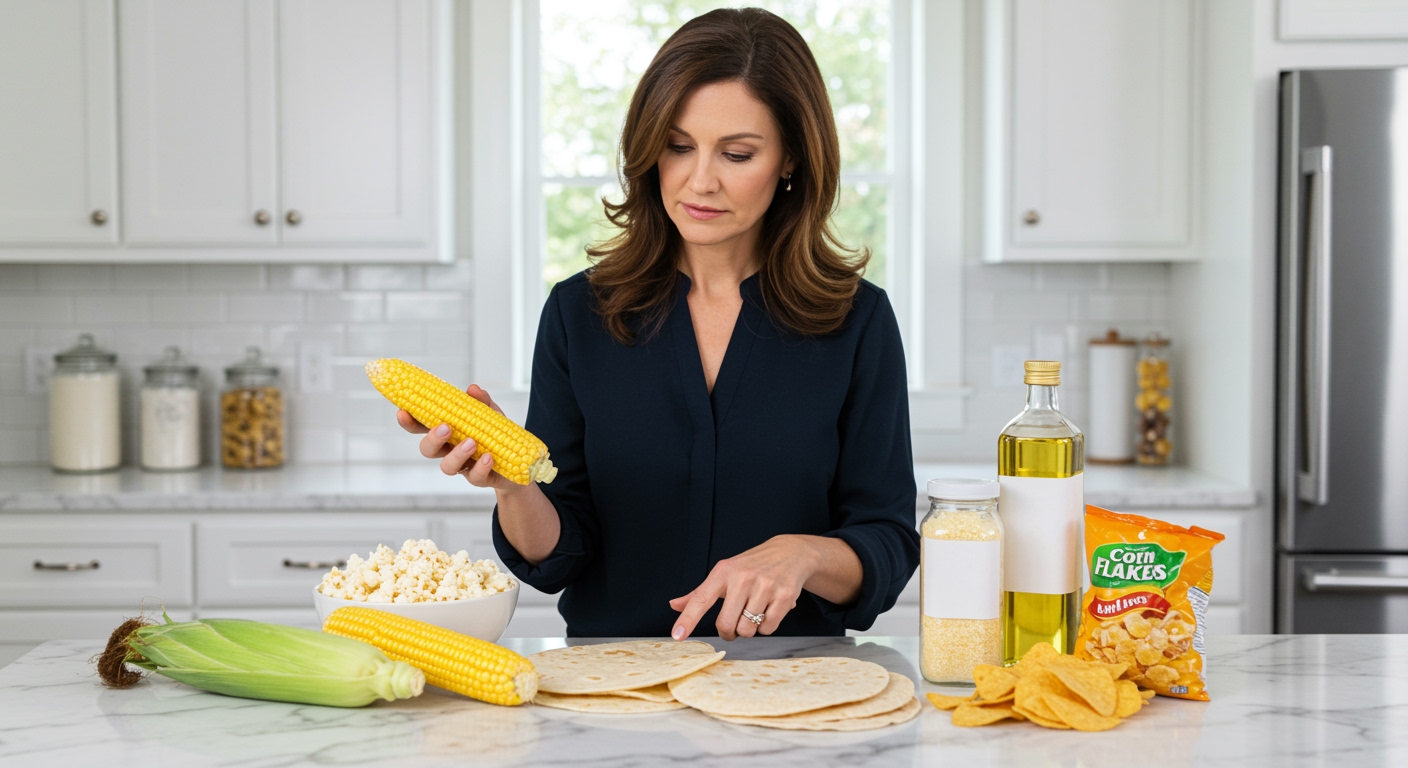✪ Key Takeaway: Fresh corn can benefit blood pressure, but processed corn products often contain harmful sodium levels.
Introduction
Your doctor just told you to watch your blood pressure, and now you are staring at your pantry wondering what foods are safe.
Corn products seem innocent enough, but you have heard conflicting information about whether they help or hurt your heart health goals.
Hi, I am Abdur, your nutrition coach, and today I am going to explain exactly how different corn products affect your blood pressure and which ones you should choose.
Does Fresh Corn Help Lower Blood Pressure?
Fresh corn contains potassium, a mineral that directly counteracts sodium effects in your body.
One medium ear of corn provides about 275 milligrams of potassium, which helps your kidneys remove excess sodium through urine.
The fiber content in fresh corn also supports healthy blood pressure by improving overall cardiovascular function.
Fresh corn contains approximately 2.4 grams of fiber per ear, which helps reduce inflammation in blood vessel walls.
Research shows that people who eat more potassium-rich foods like fresh corn have lower rates of hypertension compared to those who avoid these foods.
The natural sugars in fresh corn provide steady energy without causing the blood pressure spikes associated with processed sugars.
✪ Pro Tip: Steam fresh corn instead of boiling to preserve maximum potassium content for blood pressure benefits.
Why Do Processed Corn Products Raise Blood Pressure?
Processed corn products like chips, crackers, and packaged snacks contain excessive sodium that directly raises blood pressure.
A single serving of corn chips can contain 150-200 milligrams of sodium, while fresh corn has less than 15 milligrams.
Manufacturing processes strip away the natural potassium and fiber that make fresh corn beneficial for heart health.
Many processed corn products also contain trans fats and hydrogenated oils that increase inflammation in your arteries.
The high sodium content forces your kidneys to retain more water, which increases blood volume and puts extra pressure on your cardiovascular system.
Studies show that people who regularly consume processed corn snacks have significantly higher systolic blood pressure readings than those who eat whole corn.
✪ Fact: Processing removes up to 80% of the potassium found in fresh corn while adding harmful sodium.
Which Corn Products Are Safe for High Blood Pressure?
Air-popped popcorn without added salt provides fiber and potassium benefits similar to fresh corn.
Plain cornmeal and corn flour can be used in cooking without adding harmful sodium to your diet.
Frozen corn kernels retain most of their nutritional value and potassium content when processed without added salt.
Corn tortillas made with just corn, water, and lime provide complex carbohydrates without excessive sodium.
Always check ingredient labels because even seemingly healthy corn products can contain hidden sodium sources like monosodium glutamate.
The key is choosing corn products with minimal processing and no added salt, preservatives, or artificial flavoring agents.
✪ Note: Read labels carefully because sodium content varies dramatically between different corn product brands.
How Much Corn Should You Eat for Blood Pressure Benefits?
One to two servings of whole corn per day can provide meaningful potassium without excessive calories.
A serving equals one medium ear of fresh corn, half cup of kernels, or three cups of air-popped popcorn.
Eating corn with other potassium-rich foods like bananas, spinach, and beans amplifies the blood pressure lowering effects.
Timing matters because spreading corn intake throughout the day helps maintain steady electrolyte balance in your bloodstream.
People with diabetes should monitor portions carefully because corn contains natural sugars that can affect blood glucose levels.
The fiber in whole corn helps slow sugar absorption, making it a better choice than processed corn products for overall metabolic health.
✪ Pro Tip: Combine corn with beans to create a complete protein while maximizing potassium intake for heart health.
The Bottom Line
Fresh corn and minimally processed corn products can support healthy blood pressure when eaten as part of a balanced diet.
The difference between helping and harming your heart lies in choosing whole foods over processed convenience products.
I would love to hear about your experience with corn products and blood pressure management, so please share your questions or thoughts in the comments below.
References
At NutritionCrown, we use quality and credible sources to ensure our content is accurate and trustworthy. Below are the sources referenced in creating this article:
- PMC: Dietary Fiber and Blood Pressure Control
- Nebraska Corn Board: Six Surprising Health Benefits of Corn
- PMC: Potassium Intake and Blood Pressure





